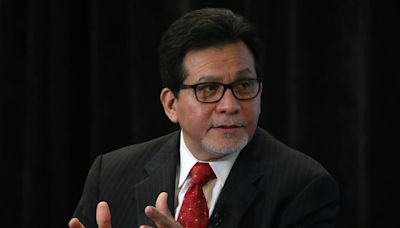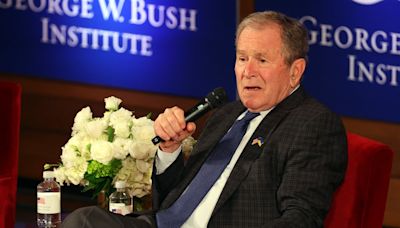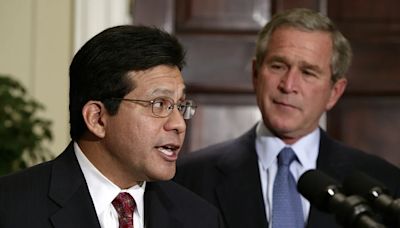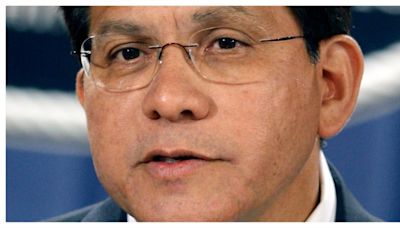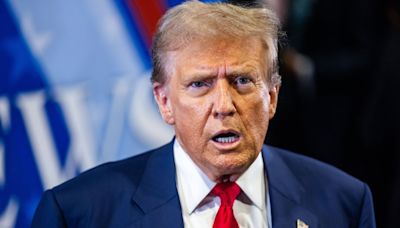Search results
George W. Bush during his presidency of 8 years from 2001 to 2009 signed 56 legislations. Major ones of these included USA PATRIOT Act, Joint Resolution to Authorize the Use of United States Armed Forces Against Iraq, Job Creation and Worker Assistance Act of 2002, United States-Chile Free Trade Agreement Implementation Act, Controlling the ...
- Overview
- History
- Provisions
USA PATRIOT Act, U.S. legislation, passed by Congress in response to the September 11, 2001, terrorist attacks and signed into law by Pres. George W. Bush in October 2001, that significantly expanded the search and surveillance powers of federal law-enforcement and intelligence agencies. The USA PATRIOT Act, as amended and reauthorized from 2003, m...
In the wake of the September 11 attacks, the Bush administration submitted to Congress draft legislation designed to expand the powers of the government to surveil, investigate, and detain suspected terrorists. The eventual Senate bill, the Uniting and Strengthening America (USA) Act, was passed (96–1) on October 11. The House measure, which includ...
Some key provisions of the legislation consisted of amendments to the Wiretap Act (1968; amended 1986 and 1994), which had prohibited eavesdropping by the government on private face-to-face, telephone, and electronic communications except as authorized by court order in narrowly defined circumstances in cases of serious crimes. Sections 201 and 202 of the USA PATRIOT Act added computer and terrorist crimes to the list of serious offenses in connection with which law-enforcement officials could seek a court order to conduct eavesdropping. Section 209 established that voice mail was not entitled to the same protections that governed telephone conversations but only to the weaker safeguards applicable to telephone records and e-mail stored with third parties (usually an Internet service provider). In Section 210 the act added individual subscribers’ credit card or bank account numbers to records that could be obtained from a communication services provider through a subpoena.
Section 216 permitted the use of trap-and-trace devices and pen registers—which record the source and destination, respectively, of calls made to and from a particular telephone—to monitor electronic communications, understood to include e-mail and Web browsing. Court orders for such surveillance did not require probable cause (a showing of facts that would lead a reasonable person to believe that the surveillance would be likely to uncover evidence of criminal activity by the target) but only a certification by the government that the information sought was likely to be relevant to a criminal investigation.
To facilitate cooperation between law-enforcement and intelligence agencies in cases involving terrorism, Section 203 allowed government attorneys to disclose matters before a federal grand jury (whose investigations are generally secret) to “any Federal law enforcement, intelligence, protective, immigration, national defense, or national security official” when such matters concerned “foreign intelligence or counterintelligence.” Section 213 authorized so-called “sneak and peek” searches, in which notification of the target is delayed until after the search has been executed. (The length of the delay must be “reasonable” but could be extended indefinitely for “good cause shown.”)
Other provisions of the act made changes to the operation of the Foreign Intelligence Surveillance Court (FISC), which was established by the 1978 Foreign Intelligence Surveillance Act (FISA) to authorize electronic surveillance (and later physical searches) targeting foreign powers or their agents. Section 218 removed the requirement that the government certify in its applications for surveillance authority that “the” purpose of the surveillance was to collect foreign intelligence information. Instead, it was sufficient that the government state that collecting such information was “a significant purpose.” In other changes, Section 215 removed a FISA provision that limited the types of records that the government, with a FISA court order, could require certain businesses to produce, replacing it with a general authority to demand “any tangible things” of any third party, including “books, records, papers, documents, and other items.” This section also imposed a gag order that generally prohibited third parties from disclosing the fact that the Federal Bureau of Investigation (FBI) had sought or obtained such things.
Are you a student? Get Britannica Premium for only 24.95 - a 67% discount!
Learn More
Nov 16, 2009 · On October 26, 2001, President George W. Bush signs the Patriot Act, an anti-terrorism law drawn up in response to the attacks on the Pentagon and World Trade Center on September 11, 2001.
Dec 19, 2017 · The Patriot Act is a more than 300-page document passed by the U.S. Congress with bipartisan support and signed into law by President George W. Bush on October 26, 2001, just weeks after the...
Homeland Security Act, U.S. legislation signed into law by President George W. Bush on November 25, 2002, that established the Department of Homeland Security (DHS) as a new department in the executive branch of the government and established a number of measures aimed at protecting the national.
- Richard J. Samuels
Other courts. Main article: List of federal judges appointed by George W. Bush. In addition to his two Supreme Court appointments, Bush appointed 61 judges to the United States courts of appealsand 261 judges to the United States district courts.
People also ask
What laws did President Bush veto?
When did Bush sign the Patriot Act?
Why did Bush enact a terrorism law?
Why did Bush create the Office of Homeland Security?
3 days ago · George W. Bush - Presidency: Bush was the first Republican president to enjoy a majority in both houses of Congress since Dwight D. Eisenhower in the 1950s. Taking advantage of his party’s strength, Bush proposed a $1.6 trillion tax-cut bill in February 2001.

